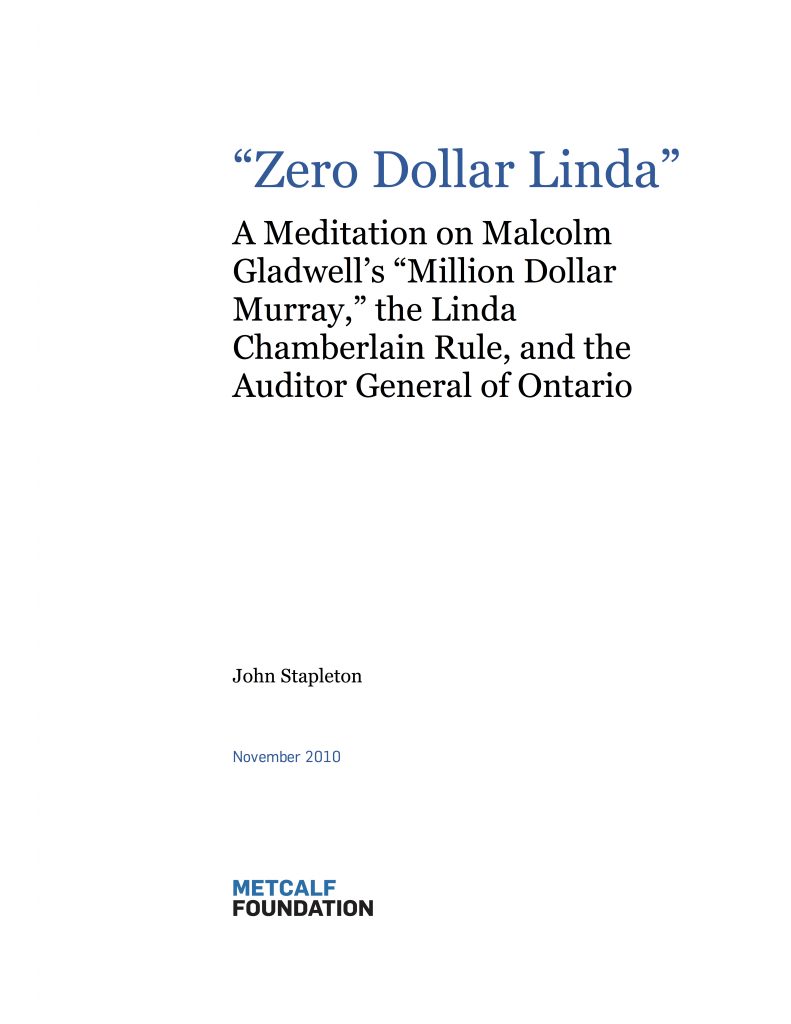Zero Dollar Linda explores the weaknesses in the design of North American social welfare institutions through the stories of two individuals.
It shows what can happen to people when they receive the Ontario Disability Support Program, live in subsidized housing, and try to be as self-reliant as possible. In the end, government policy-making uses tough, counterproductive rules that make it almost impossible to gain greater independence, and gives little discretion to those who administer the system. The paper explores how the Auditor General has done little to address this unbending system and chooses instead to fan the flames of a public perception that Ontario’s social assistance system is riddled with fraud.
Author John Stapleton concludes, “We need to create a space in the public conversation to talk about building public institutions based on trust in those whom the institution serves, governed by intelligent rules that are administered by positive discretion. In other words, public institutions, like our legal system, should start by giving each person the benefit of the doubt.”
This paper aims to advance building public policies and programs in Ontario that support maximum human dignity for those who seek assistance in good faith, and assist them to achieve their full potential.
Related Materials & Media Coverage
For full details about the workshop, download the invitation.
Linda Chamberlain’s Job Was Making Her Broke
The Toronto Star, Catherine Porter
November 19, 2010
Welfare Rules: A Smack Down, Not a Hand Up
The Toronto Star, Editorial
November 23, 2010
Two female hardship survivors give back to others
The Toronto Star, Catherine Porter
October 22, 2012
Great Gatsby v. Zero Dollar Linda: Assessing the Relationship Between Income Inequality, Social Mobility, and the Tax-Transfer System
A Macdonald-Laurier Institute Publication, Munir A. Sheikh
April 2015


